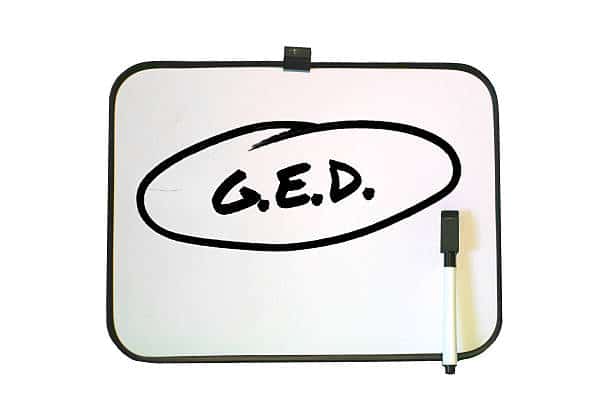Due to the rapid growth of the digital publishing sector, an almost unlimited number of digital publishing companies have emerged. The transition from print to digital has always been challenging for most publishers.
Choosing the right digital publishing platform for publishing your work can be challenging. Before searching for the best publishing companies, you must first determine which platforms best suit your topic or writing style.
You must also know what you intend to post to choose which platform would best assist you in reaching new audiences. Below is a list of the top digital Publishing companies for writers where you can publish and advertise your work in minutes.
See the table of contents below.
Table of contents
- What Is A Digital Publishing Company?
- Why Use A Digital Publishing Company As An Author?
- How Much Does It Cost To Publish With A Digital Publishing Company?
- Who Are Publishers In Digital Marketing?
- Who Are The Two Biggest Publishers In Digital Advertising?
- Top 7 Digital Publishing Companies
- Conclusion
- Frequently Asked Questions
- References
- We Also Recommend
What Is A Digital Publishing Company?
A digital publishing company is an organization that distributes media to the general public via digital platforms. A digital publishing business is a company that uses digital channels to disseminate material to the general audience.
Digital publishing (also known as online publishing or e-publishing) is the process of publishing periodicals, e-books, white papers, reports, and other long-form material on the web or on electronic carriers.
In a nutshell, it’s the process of digitizing printed materials and sharing them digitally via web technologies.
SEE ALSO: Top 20 Book Publishing Companies in Chicago
Here are some of the benefits of working with a digital publishing company:
#1. Cost-Effective Publishing
You’ll notice a significant difference when you compare the costs of publishing a physical book with an eBook. This is due to the fact that digital publication eliminates many of the processes required in traditional publishing.
You’ll need a computer, software to produce and publish your eBook, and a good internet connection for digital publication. Travel costs, printing costs, distribution costs, cover page illustration fees, and so on are all added to the cost of a book in traditional publishing.
When a user buys a printed book, they are paying for shipping, printing, publishing, distribution, cover design, and any other applicable fees. When customers buy an eBook, they are paying for the author’s hard work as well as a profit that he or she clearly intends to make. That’s reasonable. As a result, eBooks are far less expensive than traditional books.
READ ALSO: Free Scholarship Ebook for Students [DOWNLOAD NOW]
#2. Eases the Process of Book Creation
It’s a waste of paper and money to type out manuscripts and send them off for printing. Using publishing software to make an eBook instead of the old technique allows you to develop content directly on a digital publishing platform.
You may even design/download the illustration for the cover page. You may easily add HTML interactivity, drag-and-drop elements, and other features to a digital publishing platform. It gives you creative flexibility by allowing you to design the layout and themes for your eBook.
#3. Provides an Interactive Reading Experience to Users
An interactive reading experience is provided through a digital publishing company. In an eBook, users can turn pages and zoom and modify the text size to their liking. To make your magazine more interesting to your audience, you can use a variety of interactive aspects. Images and videos can be used in your eBook. Users can look up terms in the dictionary.
They can use the search option to look for a specific word or statement. You can also include a read-aloud option, which allows users to listen to the information. All of this is impossible to include in a printed book. And it is because of this that an eBook becomes more interactive and interesting for its readers. They get to interact with the text on a regular basis, which improves their reading experience.
#4. Editing Is Possible Even After Publishing
Consider this: you’ve published your book using the traditional method and discovered a typo while reading it. So, what exactly do you do? It’s expensive to republish a print book. You can rapidly make revisions and correct error in the case of an eBook.
The majority of eBooks are produced using cloud-based digital publishing tools. So, if someone wishes to update information or make other changes, they may easily do so. However, we can’t claim the same about print publication.
As a result, digital publishing allows you to keep your publications up-to-date and error-free.
#5. Analyse Distribution and User Behavior
You can track your distribution patterns with digital publishing. You can find out how many people have downloaded your eBook by looking at the number of downloads. This is a good approach to keep track of the stats because it allows you to see how many people have downloaded your eBook. You may also check out the feedback on your eBook’s performance.
In a traditional publishing model, an author or publisher must wait weeks or months to receive valuable information regarding their book’s sales performance. They may now track and obtain reliable data about their eBook distribution and consumption with the help of analytics.
This allows them to design and change their eBook sales tactics as needed. Publishers may track their earnings using up-to-date data on the eBook distribution and user use.
#6. Wider Reach
The goal of digital publication is to reach as many people as possible. The majority of people who hold a mobile device with internet connectivity have rapid access to a wide range of online content. Online material has no geographical limitations and does not require shipment or packing. Your eBook is available for download from anywhere in the world. As a result, a digital publishing platform allows you to distribute your magazine to the entire world in a secure manner.
Unless they are authored by a well-known author, people do not keep track of all the published printed books.
So, if you want to reach out to your digital audience who browses online libraries for books, you should go with digital publishing. Users will still be alerted of your latest eBook through instant notifications and alerts, even if their location changes.
Authors publish their books in print and digital formats to appeal to a wide range of readers, including both digital and print readers.
#7. Go Green with Digital Publishing
Digital publication is less harmful to the environment. Every year, an estimated 3.5 billion to 7 billion trees are killed. Furthermore, it is estimated that one ton of typical office paper requires 24 trees. Consider how many trees we could save if we all went digital and stopped using paper.
As we all know, digital publication does not necessitate any tangible materials other than a computer device. We can avoid fallen trees and contribute to the welfare of our earth if eBooks totally replace paper books, just as emails have replaced postcards.
#8. Requires Less Storage Space
What is the maximum number of books a person may carry at one time? Maybe one or two? People who travel with a digital device can carry thousands of books with them without taking up half the space that a physical book takes up.
With eBooks, storing books becomes simple and convenient. Users can simply download and keep any eBook they want to read on their smartphone. They can delete those books from their downloaded list if they do not want to read them again. As a result, digital publications enable readers to save both physical and digital space in their reading devices.
How Much Does It Cost To Publish With A Digital Publishing Company?
The majority of digital publishing companies or platforms are free, however, others need payment. The cost depends on the number of copies requested and the length of the book. Again, the cost of a book might be as low as $2.58.
It is more expensive if the writer requires assistance with editing, proofing, cover design, copyrights, marketing, and other services.
Guidelines and step-by-step instructions can be found on the websites of companies that assist writers in preparing their manuscripts for electronic publication. They may be located using any search engine on the internet. The author has the option of determining the cost of delivering the book to readers. Royalties are usually 70%, but they might be higher or lower.
READ ALSO: 10 Best College’s for Publishing and Editing | Tuition and Admission Requirements
Who Are Publishers In Digital Marketing?
A publisher in mobile marketing provides the capability and inventory that advertisers need to place ads in their applications or on mobile sites. A publisher could be a website or an application. Buyers (app developers) and agencies pay publishers for space on their properties (companies managing ad campaigns for advertisers).
Who Are The Two Biggest Publishers In Digital Advertising?
1. CodeFuel
A comprehensive solution for publishers that combines search, advertising, and news monetization while improving the user experience.
2. Amazon for Publishers
Amazon clients may use a unified ad marketplace to leverage ads on and outside Amazon.
Top 7 Digital Publishing Companies
This is our list of top digital publishing companies.
1. Smashwords
Royalties: 60% from the retailer and 80% from the Smashwords Store.
Smashwords is one of the best eBook aggregator sites out there, and if you upload your book there, it will be available at Apple Books, Barnes & Noble, Kobo, and a slew of other shops and libraries networks.
They provide you with daily sales reporting from the largest stores so you can track how well your book is doing. They also provide you with a free ISBN if you want one.
You’ll get 60% off any book sales made through a retailer (since Smashwords takes a tiny cut also) and 80% of any book sales made through the Smashbooks Store.
2. Amazon Kindle Direct Publishing (KDP)
Royalties: Up to 70%
Because Amazon sells a huge number of eBooks, their publishing platform, Amazon KDP, is also very popular – it allows you to access a large audience.
It accepts text documents and EPUB files but turns them into Kindle books that can only be purchased through Amazon. KDP assigns your book a free ASIN, which functions similarly to an ISBN.
Higher royalties and advertising tools are available through the optional KDP Select program, but you must make your title exclusive to Amazon to use it (which means you won’t be able to sell your book anywhere else!).
Otherwise, you’ll get 70% royalties on books priced between $2.99 and $9.99, and 35% royalties on books priced higher or lower, up to a limit of $200.
If you wish to publish illustrated books, KDP offers a pair of free tools: Kindle Kids’ Book Creator for picture books and Kindle Comic Creator for graphic novels and your hand-drawn masterpieces.
SEE ALSO: How To Self-Publish A Book On Amazon | Full Guide
Cost: Free (Mac only)
Royalties: 70%
iBooks Author is a free program that allows you to publish books in the Apple Books store. It also includes some cool free software to help you design your best-seller, including illustrated books.
Books saved in iBooks format, on the other hand, can only be sold through the iBooks Store. To sell your book elsewhere, you’ll need to save it in a different format, but iBooks Author only allows you to save an iBook, a PDF, or a simple text file, not an EPUB.
You’ll also need a Mac machine to utilize it, so if you don’t have one, an aggregator site like Smashwords would be a better alternative for putting your eBook on Apple Books.
4. Draft2Digital
Royalties: 60%
This is a relatively new aggregator site with a more modern and elegant appearance than its primary competitor, Smashwords.
It doesn’t reach as many sites as Smashwords, but it does hit all of the major ones, including Amazon, iBooks, Barnes & Noble, and Kobo.
The best part about Draft2Digital is their automated formatting service, which converts a simple Word document into a smart, professional eBook in no time.
SEE ALSO: How to Sell Your Used Textbooks Online: Best Places & How to Make Profit
5. Lulu
Royalties: Retailers account for 40–50% of sales, while Lulu books account for 75%.
Lulu, another new eBook aggregator site, will distribute your eBook to all of the main stores (including Amazon).
Unlike Draft2Digital, however, they will not assist you with formatting, and your book must pass its Quality Assurance exam in order to be accepted.
As a result, unless you’re sure of your ability to do it yourself, you could be better off looking for another option. Remember that Lulu also provides a marketing service (at an additional cost) that includes website setup and publicity.
6. Kobo Writing Life
Royalties: 70%
Although not as well-known as Amazon or Apple, Kobo is a large eBook retailer with stores in 190 countries.
They’ll convert your work to EPUB format, and if your book is priced at £1.99 or more, you’ll get 70% of the list price – any volumes priced lower than that will get you 45 percent. Furthermore, you are still free to publish your works elsewhere if you like!
7. Barnes & Noble Press
Royalties: 65%
This is the official Barnes & Noble eBook publishing site, formerly known as Nook Press. Barnes & Noble is a huge retailer in the United States with a sizable following in the United Kingdom.
You’ll make 65 percent on any books priced at $2.99 or above, so distributing directly through B&N rather than through an aggregator site will net you more money. On the other hand, uploading your books to specific stores is more time-consuming.
You’ll get all of the extra promotion that comes with being on the B&N site (they have millions of customers) and an easy-to-use dashboard to track sales.
Conclusion
A publisher searching for a viable publishing platform might choose from a variety of options. It all relies on your personal preferences and financial constraints. Today’s interactive content production and digital publication have no bounds. All you have to do now is go to work and start writing, thanks to all of these amazing platforms.
Frequently Asked Questions
The distribution of an ever-increasing number of publications, such as journals, eBooks, magazines, and catalogs, is referred to as digital publishing, sometimes known as electronic or online publishing.
Administrators utilize digital publishing platforms to quickly gather their work and disseminate it online for easy access by readers.
People that develop and distribute the material on the internet are known as digital publishers.
References
- The Top 10 Best Free Online Publishing Platforms For All New Writers
- 6 Digital Publishing Platforms You Should Know
- Selecting The Best Digital Publishing Platform: The Definitive Guide
- 7 Best Digital Publishing Platforms for Your Business
We Also Recommend
DISCLOSURE: This post may contain affiliate links, meaning when you click the links and make a purchase, we receive a commission.






1 comment
Comments are closed.